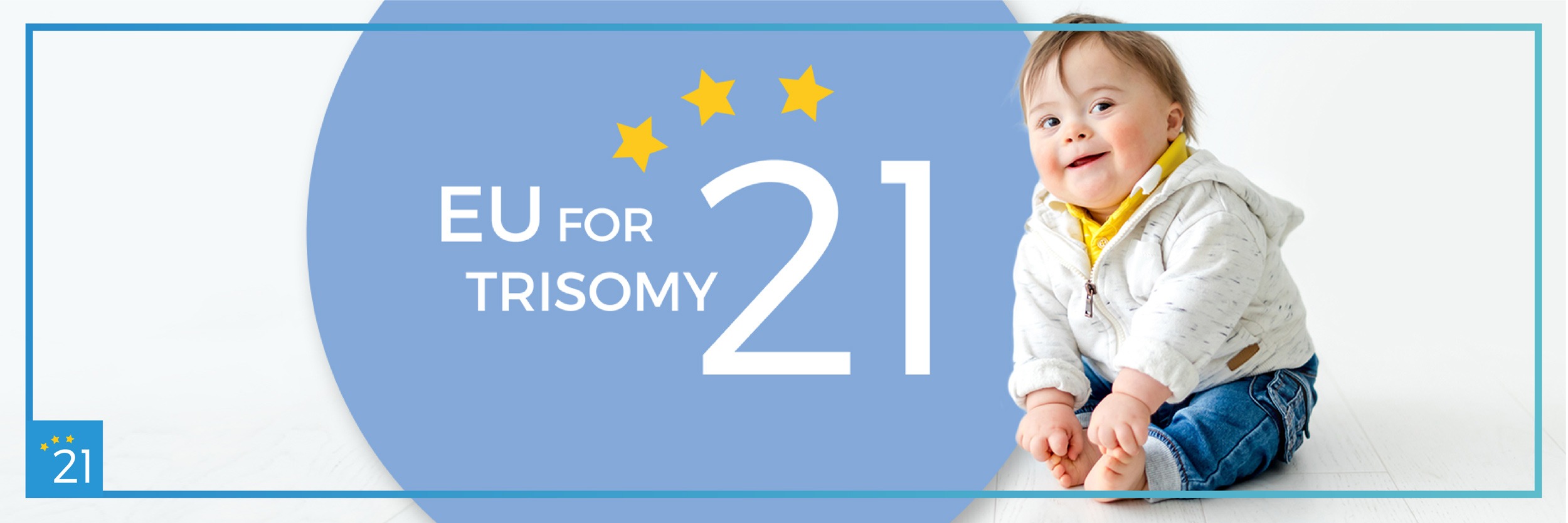
Vad är EU för Trisomy 21?
En plattform för samarbete mellan föreningar, medborgare och politiker som arbetar tillsammans för att fira World Downs syndromdagen, för att synliggöra den intellektuella funktionsnedsättningen i allmänhet och personer med Trisomi 21 i synnerhet (vanligaste intellektuella funktionsnedsättningen av genetiskt ursprung, även kallat Downs syndrom ).
EU för trisomi 21 är ett nätverk av olika organisationer och initiativ från föräldrar från hela Europa som arbetar för att förbättra livet för personer med Downs syndrom på lokal nivå. Vi hoppas kunna koppla samman dessa organisationer för att inspirera till samarbete och utbyte av bästa praxis, förena dem under EU för Trisomy 21-paraplyet så att vi gemensamt kan tala för Trisomy 21 vid EU-institutionerna.
Europeiska unionen har den juridiska kompetensen att ta fram lagstiftning som tar itu med problemen angående personer med funktionsnedsättning: hälsa, sysselsättning, diskriminering, utbildning, mänskliga rättigheter... Ändå minskar eller stagnerar budgetarna och de europeiska projekten som rör personer med intellektuella funktionsnedsättningar år efter år.
Våra alliansers mål är att förbättra Autonomi, Synlighet, Hälsa och Likvärdig behandling människor med trisomi 21 i hela samhället och pressa EU-institutionerna att stödja de mest utsatta bland oss.
Vad gör EU för trisomi 21 vilja ?
Vi vill att behoven hos personer med intellektuella funktionshinder ska prioriteras på den europeiska agendan för att garantera verklig jämlikhet mellan medborgarna.
Synlighet
Människor med funktionsnedsättning finns inte i den politiska miljön, inte på arbetsmarknaden och inte heller i media. Om personer med funktionsnedsättning inte syns i samhället är det omöjligt att skapa nödvändiga förändringar.
Icke-diskriminering
EU: s lagstiftning mot diskriminering har kommit långt de senaste åren för de olika minoritetsgrupperna, utom för personer med funktionsnedsättning. Människor med intellektuella funktionsnedsättningar behöver några speciella anpassningar för att säkerställa att dessa lagar och rättspraxis skyddar dem och inte bara i teorin.
Hälsa
Europeiska unionen måste agera i det bästa för människor med intellektuella funktionsnedsättningar för att säkerställa deras rätt till "en hög nivå av skydd för människors hälsa" som fastställs i Europeiska unionens stadga om de grundläggande rättigheterna.
Autonomi
För att garantera personer med intellektuella funktionshinder oberoende och valfrihet måste vi främja deras autonomi. För detta ändamål måste EU uppmuntra medicinsk forskningsprogram med terapeutiska mål och inkluderande innovativa sociala projekt som integrerar i samhället deras mångfald.